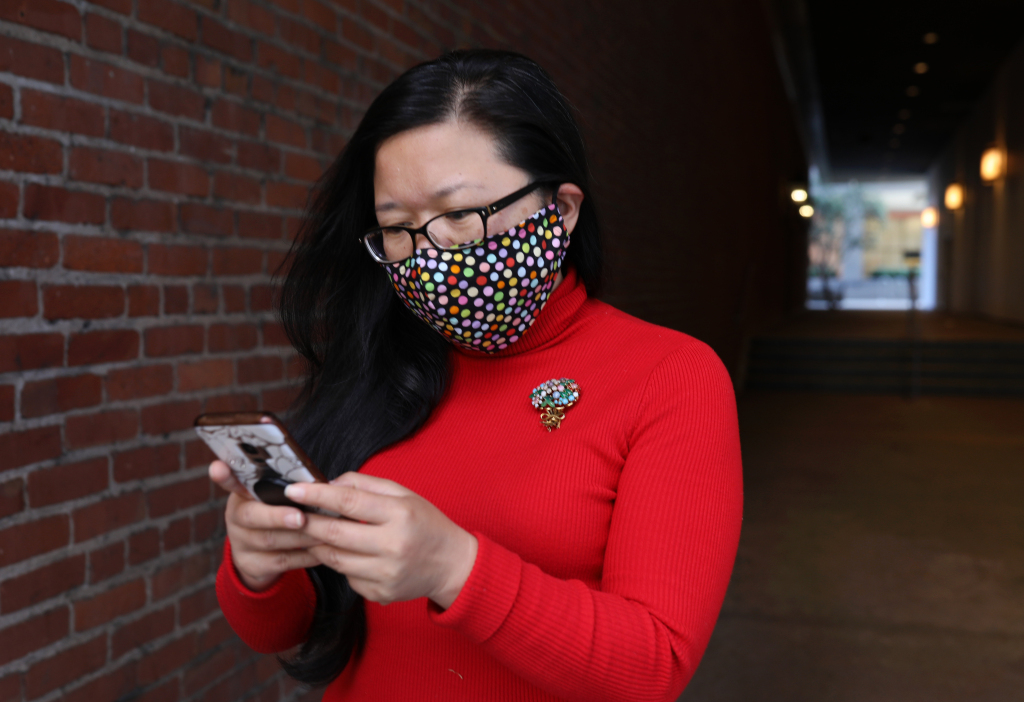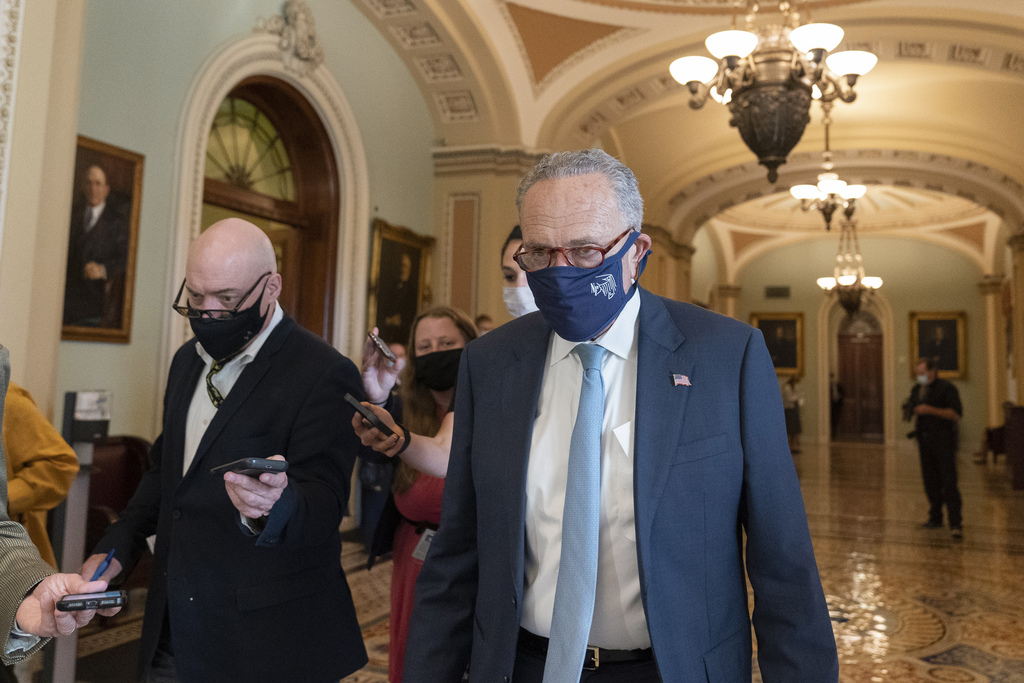After her father passed away in January, Ming Luo promised her mother that she’d try to visit more often. They’re far apart — Luo lives in Palo Alto and her mother in Chengdu, China — and Luo stays in touch through video calls on China’s ubiquitous messaging app WeChat.
“We’ll chat about everything,” she said. “It’s become very essential for me, and for her too because she is 75 this year. … We cannot travel easily to see each other and also it’s pretty lonely.”
Now, Luo is not sure how much longer she’ll be able to stay in touch. An executive order from the Trump administration last week imposed restrictions on WeChat and fellow Chinese-owned social media app TikTok due to national security concerns. The president’s directive targets “transactions” with WeChat, and it’s uncertain how an interpretation of the order, due in late September, will affect access in this country.
As scrutiny mounts, Chinese-Americans and Chinese immigrants in the Bay Area, more than 700,000 people according to census data, shared fears of losing a vital — and, to them, innocuous — link to friends, family and communities back home.
WeChat, a popular Chinese social media app with an array of integrated services for blogging, photo sharing and online payments, is the first and sometimes only option for Bay Area residents looking to reach anyone in China. Most alternatives like Facebook or WhatsApp are blocked within China by state firewalls.
For people like Jing Hua, a Realtor from Shanghai living in Cupertino, that means everyone from business contacts to old friends. On WeChat, Hua keeps up with college classmates from back home through a large alumni group chat. She’s got groups from her high school, middle school and elementary school too.
“We don’t know each other’s phone numbers, but we know each other’s WeChats,” she said.
Mimi Chan described the app as a “lifeline” for her parents, who immigrated to San Francisco from Hong Kong 40 years ago.
“When they discovered WeChat five to 10 years ago, it immediately boosted their ability to stay in touch with all their family and friends back home in Hong Kong and Beijing and other parts of China,” she said. “People that they would in the past only talk to when they were actually traveling in China or maybe on a couple of special occasions, suddenly became someone that they could talk to every day.”
Most had similar answers when asked to explain WeChat’s popularity: It’s convenient, all-encompassing in its features and too popular among Chinese communities to avoid. According to July statistics compiled by datareportal.com, the app has over 1.2 billion monthly users worldwide, compared to Facebook’s 2.6 billion.
“In China, I don’t think you’ll get a lot of choice for (messaging apps) as easy and as powerful as WeChat,” said Melanie Chen, a consultant in Danville who uses the app to keep up her relationships with a close group of high school friends in Beijing and Singapore.
The Chinese government’s influence over WeChat is not lost on its users. Hua and Chan echoed some of the data privacy concerns raised by the White House in arguments for the executive order. It is common knowledge, says Chan, that the Chinese government monitors WeChat messages for politically sensitive content. But she doesn’t believe the scrutiny threatens her or her life in the U.S.
“I don’t feel like what I’m talking about is some state secret,” she said. “We might use (WeChat) a little bit differently based on our personal concerns, but it’s not enough for us to stop using it because there’s value in it.”
Both Hua and Chan said they also have privacy concerns with other apps and questioned why WeChat should be singled out.
“As Americans, when we think about China banning people’s use of Facebook, it feels ridiculous to us, right?” Chan said. “And yet, if we were to say here, ‘Oh, we should ban Chinese apps from being used by Chinese people here,’ how is that any different?”
“If you use a Google browser, they record everything, they know everything,” Hua said. “Between convenience and privacy, you can’t have both.”
Chan also expressed broader concerns about a troubling turn against Chinese-Americans after months of increasing tension between the U.S. and China, and the politically and racially-charged characterizations of the coronavirus pandemic.
“We are being seen differently, between bans on immigration, and then on top of that the perception that Chinese people brought COVID-19 to people here … there’s a lot of discrimination going on and this feels like part of that same story,” Chan said.
If the U.S. decides to restrict access to WeChat, some users such as Melanie Chen and her friends will consider switching to other apps. But that’s not an option for others whose family members and elderly relatives don’t have the tech savvy to find alternatives.
“She never had email and she will not go on a VPN (virtual private network) to get like Facebook or anything, so WeChat is really the only thing,” Luo said of her mother, living alone in Chengdu. “That would be the hardest thing for me to cope if WeChat is banned.”
For now, the Bay Area’s WeChat users can only wait. Luo has tried her best to reassure her mother.
“I try to play it down,” she said. “I just don’t want her to worry about this, but she’s already started to say, ‘Oh, what if I can’t talk to you?’”










